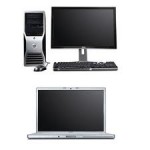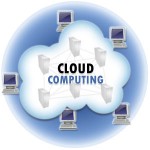DO YOU CARRY YOUR CELL PHONE WITH YOU?
10 Reasons to keep it close by
 Although cell phone use in the US is well over 90%, there are still individuals that have resisted the urge to “become wired.” Although many of us would like the ability to escape and not be reached, there are many reasons why having a cell phone has become a necessity. The following are some of the more important ones:
Although cell phone use in the US is well over 90%, there are still individuals that have resisted the urge to “become wired.” Although many of us would like the ability to escape and not be reached, there are many reasons why having a cell phone has become a necessity. The following are some of the more important ones:
1. You are almost always accessible. It is possible to limit your accessibility by switching the phone to a vibrate only mode, or turning it off, when at the movies or at dinner for example.
2. In case of emergency, you can reach out for help whether you are lost, have a flat tire or in need of medical assistance.
3. Running late? You can either call or send a text message.
4. Keeping in contact with your children whether it be a change of plans or out late at night.
5. If you are a senior, the ability to keep in touch with your family. If you are living alone, giving your children peace of mind.
6. Cost – Long distance calling is usually cheaper.
7. Taking a trip? – Have your home calls transferred to your cell phone.
8. If you are dependent on e-mail, you can purchase a “smartphone” that permits you to access your messages from anywhere.
9. An easy way of having access to all your contact information.
10. An extra alarm clock.
If you need assistance determining what type of cell phone is best for you or want to discuss upgrade options, do not hesitate to contact me at 917 921-4518 or by e-mail at jblue@bluetutor.com.
10 REASONS TO LOVE NETFLIX!
Do You like Movies?
 1. One monthly fee ($7.99) lets you watch as many movies as you want.
1. One monthly fee ($7.99) lets you watch as many movies as you want.
2. Movies on Demand – You can watch a movie anytime you want either on your TV, computer, or smartphone (iphone, android, etc.)
3. No need to leave home.
4. No late fees
5. Large selection of movies in multiple categories Including classics that you may have missed or want to see again
6. A large library of past TV shows. You can watch multiple episodes of a series in a row
7. Cheaper than subscribing to all the premium movie channels from your cable provider
8. Can’t sleep, watch a movie.
9. You can search for a movie or TV show by category, title, or actor/actress.
10. No Commercials
If you have any questions about how to set up a Netflix account, do not hesitate to contact me by phone at (917) 921-4518 or by e-mail at jblue@bluetutor.com.
In addition, click HERE to join my mailing list and receive my FREE whitepaper on setting up a home office and becoming a true road warrior.
ARE YOU USING SOCIAL MEDIA TO PROMOTE YOUR BUSINESS?
7 Questions You Should Be Asking Yourself
![]() 1. Are you using social media for both personal and business purposes?
1. Are you using social media for both personal and business purposes?
2. Do you have a social media strategy for your business?
2. Have you integrated social media into your marketing plan?
3. If you are one of the 700 million plus Facebook users, have you set up a separate business page?
4. What sites are you using: Facebook, LinkedIn, Twitter, YouTube, Tumblr, Foursqure, etc.?
5. Are you interacting with your contacts and groups on a regular basis?
6. Are you using sites such as Google Analytics to evaluate your social media strategy?
7. Are you able to manage your social media program or do you need to hire a “cyber ghost assistant” in order to devote time to running your business?
Remember, a successful social media program is one that has been customized to fit your specific needs. Make sure your goals are clear before jumping into the social media waters.
If you would like to discuss how to set up a social media plan, do not hesitate to contact me by phone at (917) 921-4518 or by e-mail at jblue@bluetutor.com.
In addition, click HERE to join my mailing list and receive my FREE whitepaper on setting up a home office and becoming a true road warrior.
CONFUSED BY YOUR CELL PHONE BILL?
What is a Tiered Data Plan?
 Recently released statistics (as reported by CNN.com) indicate that more than a third of U.S. adults now own smartphones. The Nielsen Company reports that smartphones represent over 50% of all new cell phone purchases.
Recently released statistics (as reported by CNN.com) indicate that more than a third of U.S. adults now own smartphones. The Nielsen Company reports that smartphones represent over 50% of all new cell phone purchases.
By definition, a smartphone is any mobile device that combines functions such as telephone, e-mail, Internet access, contact information, and calendar. The three major suppliers of smartphones are Apple’s I-Phone, RIM’s Blackberry, and Google’s Android.
Cell phone providers (Verizon, AT&T, Sprint, etc.) offer a variety of telephone plans based on your usage. While the telephone plans are the same for smartphones, there is an additional charge for “data,” meaning e-mail and Internet access. These charges add an additional $30 and up to your bill.
Several weeks ago, following the lead of its competitors, Verizon ended its “unlimited” data plan and introduced “tiered” pricing. The end of the unlimited era has confused many consumers who do not understand the new pricing structure which is based on the amount of data usage. Verizon now offers monthly plans of $30 for 2GB of data, $50 for 5GB of data and $80 for 10GB of data. Additional fees will apply if you exceed the limits of your plan.
In order to determine what plan is best for you, below is a list of functions that will impact your data usage.
1. Streaming video – Watching video on programs such as YouTube or full length movies on services like Netflix and Hulu on your smartphone or I-Pad.
2. Streaming Audio – While it is OK to play music from your I-Tunes library, using Internet Radio programs such as Pandora eats into your usage (although not as much as video).
3. Navigation systems – Using your smartphone on the road as opposed to an in-car navigation system.
4. Internet Use – Sites with significant amounts of data.
Accessing social media sites such as Facebook will not consume a lot of megabytes. However uploading photos will. Twitter is fine since it deals mainly with small amounts of text. No need to worry about e-mail, since it is basically plain text. However, if you receive attachments with high resolution pictures, your usage will increase.
An alternative to using your cell phone provider’s data service is using Wi-fi wherever it is available, whether that be at home, in your office or a “hotspot.” There are no data limitations with a wi-fi connection.
As for me, I am on the road quite a bit and use my smartphone all day. An analysis of my usage indicates that I am well under 2GB per month, which should be more than sufficient for the average mobile warrior. I suggest you check with your service provider who is able to provide you with an analysis of your usage prior to selecting a pricing package.
If you have any questions about your cell phone situation, want to discuss a possible upgrade, or any other technology issues, give me a call at 917 921-4518 or send an email to jblue@bluetutor.com.
Click HERE to join my mailing list and receive my FREE whitepaper on setting up a home office and becoming a true road warrior.
MOVING YOUR OFFICE TO YOUR HOME?
Need to Reduce Your Expenses?
What You Need to Know About Your Technology
 The economy has forced many small businesses to cut expenses. Although you might have already reduced your payroll costs and slashed your advertising budget, your overhead is still way too high. The toughest decision has been made to relocate your office to your home and the process is underway.
The economy has forced many small businesses to cut expenses. Although you might have already reduced your payroll costs and slashed your advertising budget, your overhead is still way too high. The toughest decision has been made to relocate your office to your home and the process is underway.
Chances are that you have started to weed through old paperwork that is no longer needed, posted ads on Craig’s list to sell some furniture, called a mover, researched storage facilities, and tried to figure out how fitting your business into your apartment or house will work.
What about your technology needs? Have you given any thought to what you will need and whether or not your home will accommodate your business needs. The following are some issues that must be addressed before you make the move:
1. What are your computer and hardware needs at home?
2. Have you determined whether your home will support the extra electrical load?
3. What about Internet access? Chances are you are using a business Internet provider. Your home Internet provider (Cable or DSL) might have to be upgraded to support your business needs.
4. Have you thought about your communication needs? Will you be transferring your existing business telephone and fax numbers? What if your home is in another state? Perhaps you should consider one of the Internet based phone systems.
If you have any questions about the big move or any other technology issues, you can contact me at 917 921-4518 or by e-mail at jblue@bluetutor.com.
Click HERE to join my mailing list and receive a FREE copy of my whitepaper on Technology Tips for Your New Business.
DO YOU HAVE YOUR OWN COMPUTER FOR YOUR BUSINESS?
 Most likely, your household has a computer or two that is used by everyone. That’s fine for personal use. However, if you have a home office, you need your own computer. You don’t want to be in the middle of answering your e-mails or writing a proposal when another member of the household suddenly interrupts you because they need to look up a movie schedule or do homework.
Most likely, your household has a computer or two that is used by everyone. That’s fine for personal use. However, if you have a home office, you need your own computer. You don’t want to be in the middle of answering your e-mails or writing a proposal when another member of the household suddenly interrupts you because they need to look up a movie schedule or do homework.
Before I discuss your options, let me state that buying a new computer is not the budget breaking experience it was in the past. Prices are well under $1,000 for a state-of -the-art Windows computer while MACs will run slightly higher, based on your needs.
There are two types of computers; desktops which have a box and a separate monitor (there are a number of all-in-one models available), and laptops. Desktop monitors vary in size and can be as large as some TV screens. They are meant to be used in one location.
There are different types of laptops. Their advantage is that they are space savers and, except for the larger models, mobile. The largest, usually weighing over 7 pounds, have monitors as large as 17 inches and are considered “desktop replacements.” They are not meant for mobile use.
The most favored group of laptops weigh under 5 pounds, with screen sizes in the 13”-15” range. These mid-size models are not only space savers, but you can travel with them. They are large enough to use as your main computer, saving on having to buy a second computer for the road.
The third type of laptop is called a netbook. It weighs under 3 pounds with a 10” screens. The keys are small, and are meant for people who need a full function computer for travel purposes only.
Tablets are in the news and growing in importance. Everyone seems to want an iPad, and it has been dominating the tablet market. As we look at it from a business perspective, it can be a useful tool for roaming around your home and on the road with Internet access either through Verizon or ATT or a wherever a wireless network is available. Its features include the ability to use the Internet for e-mail, access your music, contacts and calendar information. However, despite Apple’s claims, it has not replaced the computer, since typing documents on a touch screen is a challenge. Additionally, printing is an issue, and it does not come with any input devices such as a USB port although adapters are available.
The decision concerning what to purchase will be based on the nature of your business and whether you will be operating mainly in your office or on the road. The specifications of the computer (speed, hard drive size, etc.) will not be the determining factor in your decision, since they all have the capacity to address your individual needs.
All types of computers listed above come with a variety of specifications that can be quite confusing. However, if you are concerned about cost, as we all are, there is no need to have the “latest and greatest.”
Speed is overrated. The difference in either buying a computer with the fastest chip or one that is a step lower can be hundreds of dollars, and you will never notice the difference. The fastest and most popular chips are Intel’s i3, i5, and i7 models. However, computers with chips from AMD are less costly and are fine unless you require a high performing model.
Memory (RAM) is probably the most important and least expensive component. At least 3 gigabytes (GB) and, ideally, 4 GB is recommended. Windows computers should be “64 bit” for maximum performance.
As for Hard disk space, 350 GB should be the minimum, although 250 is OK. 500GB is an option for large file storage. Check the prices.
All computers come with USB ports to attach printers and other external devices. The standard is USB 2.0. However USB 3.0 is entering the market although, at this writing, there are few external devices that are able to operate at a faster speed.
Most laptops come with a built in camera for video conferencing but check before purchasing. If you are buying a separate monitor either for a desktop or to use with your laptop at home, make sure it comes with the camera. If your existing monitor does not include a camera, you can purchase one for under $100 that attaches to the top of the monitor.
The issue of Windows vs. MAC always comes up, and there is no clear answer. Windows based computers still represent close to 90% of all computers in the market. Large corporations still depend on them since most major business applications (programs) are written for Microsoft Windows. MACs are very popular for personal use, and many small business owners own them. MAC desktops and laptops are more expensive. However, as of yet, they are not prone to viruses and other malicious attacks and are regarded as easier to use. I own both, a Windows for my business and a MAC for personal use. MACs can run Windows at an extra cost if you need a Windows based program. However, if you include Windows on your MAC, you will need the standard anti-virus and spyware protection as discussed earlier.
If you have any questions about selecting a computer or any other technology issues, you can contact me at 917 921-4518 or by e-mail at jblue@bluetutor.com.
Click HERE to join my mailing list and receive a FREE copy of my whitepaper on Technology Tips for Your New Business.
HAVE YOU SELECTED THE RIGHT AREA FOR YOUR HOME OFFICE?
Location, Location, Location
Selecting the right location for your home office is critical. Chances are that you already use a computer at home and have set up an area for the computer, printer, etc. However, using a computer for personal use is substantially different from using it for business purposes. A business office requires a private environment, with no traffic and noise. While I realize that many of you have space limitations, particularly those of us that live in an apartment, you need to avoid an area that is a walk through, has a dishwasher running and other diversions. Pick a bedroom, if necessary, and close the door while you are working.
Once you have decided on a location, be sure that you have Internet access. Most of you probably have a wireless network at home. If this is the case, there is no limit on how many computers can access the Internet through the network. You don’t need a separate account with an additional modem and router. The main issue is whether you can obtain a strong signal in your designated work area. The range of a wireless network is several hundred feet. However, thick walls and floors such as those that exist in prewar (World War 2) structures will encounter “dead areas.” If this is the case, boosters can be installed to carry the signal to your office area.
Now that you have selected a nice quiet, remote area to work, desk location needs to be addressed. You don’t want to face a window or have it in back of you. The glare from the outside will make it very difficult to see the monitor. Although it would be nice to be able to view the park and the birds, make sure you are either facing a wall or have it behind you. Do not take this advice lightly!! An acquaintance of mine told me that she had her desk in front of a window with a marvelous view for years. Now her eyesight has deteriorated. Make sure you avoid excessive light and glare.
Selecting the right chair will save your back. Make sure your back is supported, and that you are not leaning over to view the monitor. Kitchen and dining room chairs should not be used. Invest in a good chair.
If you have any questions about setting up a home based office or any other technology questions, do not hesitate to contact me at 917 921-4518 or by e-mail at jblue@bluetutor.com
WHAT IS CLOUD COMPUTING??
 Whether or not you realize it, you have been using a cloud based service since you first started using a computer. These services include AOL, Hotmail, and G-Mail accounts. Chances are they you are one of the half billion plus members of Facebook.
Whether or not you realize it, you have been using a cloud based service since you first started using a computer. These services include AOL, Hotmail, and G-Mail accounts. Chances are they you are one of the half billion plus members of Facebook.
Well, welcome to “the cloud!” Simply defined, cloud computing means having every piece of data you need at your fingertips and ready for use, being able to access all of your personal data at any given moment, having the ability to organize and store data from any computer, and on any model device. Using the cloud permits you to share that data (proposals, photos, movies, contacts, e-mail, documents, etc.) with your friends, family, clients and coworkers.
There are many excellent free cloud based programs that are extremely useful for your business. My favorite is Dropbox. I store all data in Dropbox that I would like to access from another computer or my mobile devices while on the road. You can store up to 2 GIGs for free. For $9.99/mo., you can store 50GIGs. I find the free version is plenty for carrying around what I need. As I write this blog, it is stored at Dropbox in order for me to able to work on it from wherever I am located. Another favorite of mine is Evernote. Instead of carrying around little scraps of paper with reminders scribbled on them, I enter them from any computer or mobile device into Evernote. Both sites are password protected. There are a host of other cloud based services and programs available ranging from news services, financial market reports, video conferencing, movie listings, flight information, hotel reservations, weather, etc.
No need to be afraid. Accessing the cloud is safe and secured as long as you know the site. You do it on your personal computer every time you use the computer.
With the world becoming more mobile and the fact that, in just a few years, more people will be accessing the Internet through one of the handheld devices (Blackberries, I-Phones, I-Pads, and Androids), cloud computing will continue to gain in popularity.
So, get with it! Join the cloud group. If you have any questions regarding cloud computing or any other technology issue, give me a call at 917 921-4518 or e-mail me at jblue@bluetutor.com.
WHAT BOOMERS AND SENIORS WANT FROM TECHNOLOGY
Why Boomers and Seniors are Embracing Technology
 Contrary to common belief, Baby Boomers, born between 1946-1964, as well as seniors are embracing technology. As a technology adviser and trainer, the one expression I hear more than any other is “Technology helps me live a fuller life.” As long as it is kept simple, they are always looking for technology to help them discover new ways to enhance their lives. Below is a list of some of their favorite pastimes.
Contrary to common belief, Baby Boomers, born between 1946-1964, as well as seniors are embracing technology. As a technology adviser and trainer, the one expression I hear more than any other is “Technology helps me live a fuller life.” As long as it is kept simple, they are always looking for technology to help them discover new ways to enhance their lives. Below is a list of some of their favorite pastimes.
1. Video conferencing – Whether it’s Skype or I-Chat (on MACs), keeping up with parents, children and grandchildren has been the biggest incentive for elders to embrace technology. Weekly video visits has strengthened ties between generations. How about some of your friends in different continents? And for FREE!
2. Sharing photos and videos – Can’t attend a graduation, wedding, or birth of a new grandchild? These precious memories can be sent to you as the event is occurring.
3. Want to contact someone who is not available by phone? Text messages are received instantaneously. All you need is your cell phone.
4. Social networking sites have permitted boomers and seniors to reconnect with long lost acquaintances. Signing up for Facebook will insure that you will be up to date with your grandchildrens’ activities and see the latest pictures.
5. Eyesight failing? Electronic reading devices (kindles, I-Pads, etc,) will let you enlarge print and to listen to the audio of your favorite books, magazines, and newspapers.
6. Want to watch Charlie Rose anytime? Visit his website for past shows.
7. Looking for a new job or volunteer work? Instead of wading through the classified, try searching online.
8. Widows and widowers are flocking to online dating services. Gone are the days when the only way you could meet someone was at a bar, social function, or through an introduction.
9. No need to stand on line at the bank. Elders prefer online banking to pay bills and check balances.
10. Tracking your portfolio – No need to call your broker. All your financial information is available online.
The list is endless. However, whether it is researching exotic travel locations, looking to buy a new car, checking movie reviews and times, seniors and boomers have more spending power than any other generation and are more than willing to spend it on new technology as long as it is simple, requiring little maintenance.
10 REASONS YOU MUST HAVE A BACKUP SYSTEM

You’ve recently left corporate life, set up a home office or started a new business. Your documents, pictures, music, videos, etc, that are stored in your computer are important to you. Do you have a backup system? Here are some reasons you should be backing up your data.
1. What if your computer crashes and you can’t start it.
2. Your home/office burns down
3. Your computer has been stolen
4. You left the computer in a restaurant, hotel, etc.
5. Coffee, soda or other liquid has been spilled on the keyboard of your laptop
6. The computer has been dropped
7. A virus has wiped out the hard drive
8. Malware, short for malicious software, has permitted someone to infiltrate your computer system without your consent
9. You have inadvertently erased an important file.
10. Someone else who uses your computer has deleted files
The list goes on. Before disaster strikes, make sure you are backing up ALL your important data onto an external hard drive and explore many of the online backup options that are available.
If you have any questions about what method of backup is best for you, do not hesitate to contact me.
